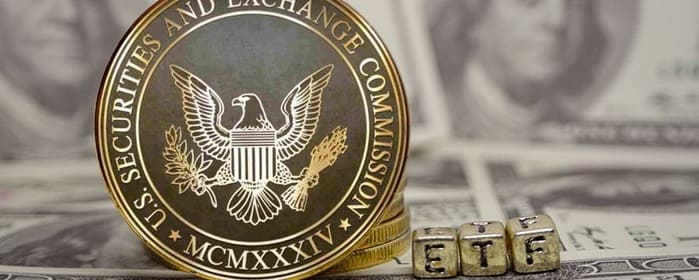The United States Securities and Exchange Commission (SEC) has unveiled the next steps in evaluating the proposals for Bitcoin exchange-traded funds (ETFs) submitted by Franklin Templeton and Hashdex. The agency has called for written comments on both proposals, seeking approval or denial of Forms 19b-4 submitted by the applicants.
Form 19b-4, a publicly disclosed document approved by the SEC’s Trading and Markets Division separately from Form S-1, is a crucial part of the process. The comment solicitation has an open period of 35 days from its publication in the Federal Register. This process allows for feedback and responses from the blockchain community and market experts.
Update: Wow. SEC went super early on Franklin. They weren't due for another decision until Jan 1. Notably Franklin is the only issuer who didn't submit an updated S-1 yet. Wonder if that has any impact here. https://t.co/go4K1wSTpw pic.twitter.com/bA6aULvPCd
— James Seyffart (@JSeyff) November 28, 2023
The regulatory changes proposed in September aim to facilitate Bitcoin ETF trading. The Hashdex ETF would be traded on the New York Stock Exchange Arca, while Franklin Templeton’s proposal focuses on the Cboe BZX platform. It’s noteworthy that on November 15, the SEC extended the original deadline for deciding on these applications.
The SEC Evaluates Bitcoin ETFs Detail by Detail
The questions raised in the comment solicitation address crucial issues related to potential ETF approval. Commenters are invited to assess the susceptibility of the funds to manipulation. They have to consider whether the exchanges that will host them are of significant size. Additionally, in the case of Franklin Templeton, commenters were asked to consider price manipulation in the Bitcoin market and the surveillance-sharing agreement with Coinbase, which would contribute to price discovery and aid in detecting manipulation and fraud.

Hashdex’s proposal presents a more complex structure, as its Bitcoin ETF would be structured as a futures ETF that holds spot BTC. Unlike Franklin Templeton, Hashdex would acquire Bitcoin from other exchanges on the CME, relying solely on this mechanism for pricing.
The central question for Hashdex revolves around the significance of the CME and the availability of liquidity. Furthermore, information is sought regarding Toroso Investments’ calculations to determine the relationship between the Bitcoin price on the CME and on unregulated exchanges, as this sponsor manages and controls the fund.

